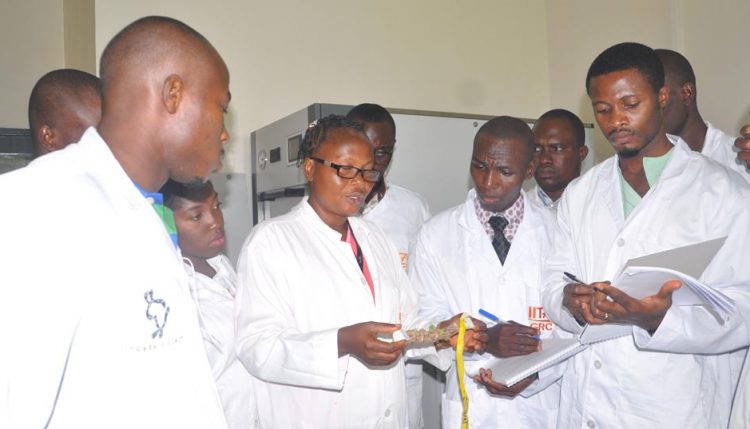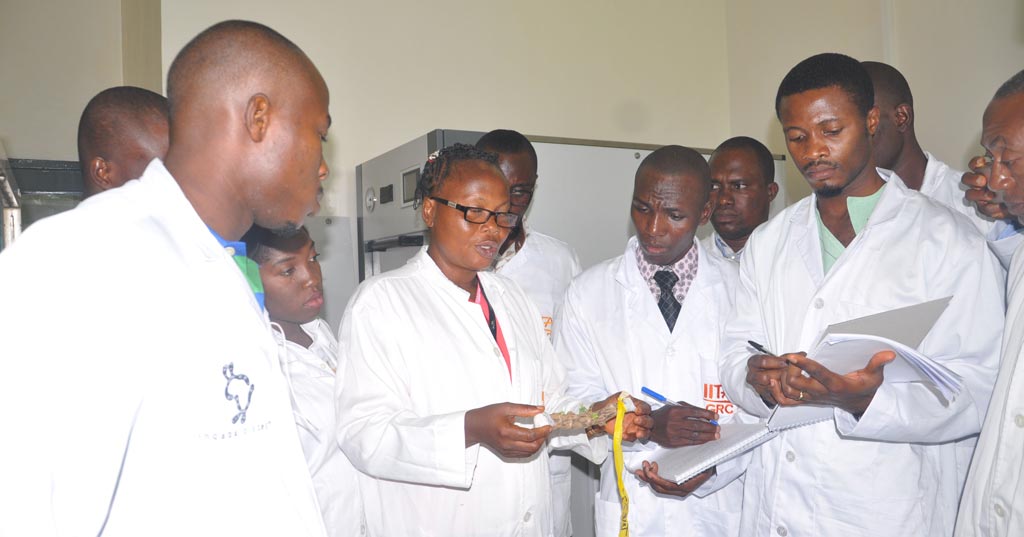
IITA’s Genetic Resources Center trains partners
Two training sessions aimed to upgrade the capacity of national agricultural research systems (NARS), Genebank technicians, students, and lecturers to do laboratory experiments have been concluded by IITA’s Genetic Resources Center in collaboration with the Capacity Development Office in Ibadan.
The first training on Genebank Management for National Agricultural Research Systems in sub-Saharan Africa was held 26-30 September, and the second training on plant in vitro culture/conservation was held on 3-7 October.
Areas covered during the training on Genebank conservation and management systems included characterization and conservation of clonally propagated crops like cassava, yam, and banana, in vitro conservation, tissue culture, record keeping/data management, access/distribution of seeds, international and local policies that affect distribution of seeds, molecular characterizations, DNA fingerprinting, seed utilization, and networking among genebank systems in Africa.
“The objective of the course was to develop the capacity and skills of participants in genebank management to enable them to manage their genebank systems effectively in their countries. It also aims at building the capacity of national agricultural research organizations on genebank management practices to ensure adequate seed conservation and distribution systems,” said Michael Abberton, who facilitated the training.
During the training on plant in vitro culture/conservation, participants learned the use of in vitro culture tools, mainly for conservation of clonally or vegetatively propagated crops, multiplication, and somatic embryogenesis.
“Part of our duties is to serve as a training and capacity development platform for the NARs in Africa, especially in areas that can help improveand reach the goal of having a more productive agricultural system,” Badara Gueye, Plant Tissue Culture and Conservation Specialist, highlighted during the training.
Gueye also encouraged the participants to share the knowledge from the training with their counterparts back home. “After this hands-on training, IITA will be very much glad to have you transfer your acquired knowledge to your respective laboratories and Universities in your countries. That is how we can promote knowledge in the localities that we cannot reach directly,” Gueye said.
The participants, from Benin, Côte D’Ivoire Ethiopia, Ghana, Kenya, Nigeria, South Sudan, and Togo, were issued certificates at the end of the training courses.

